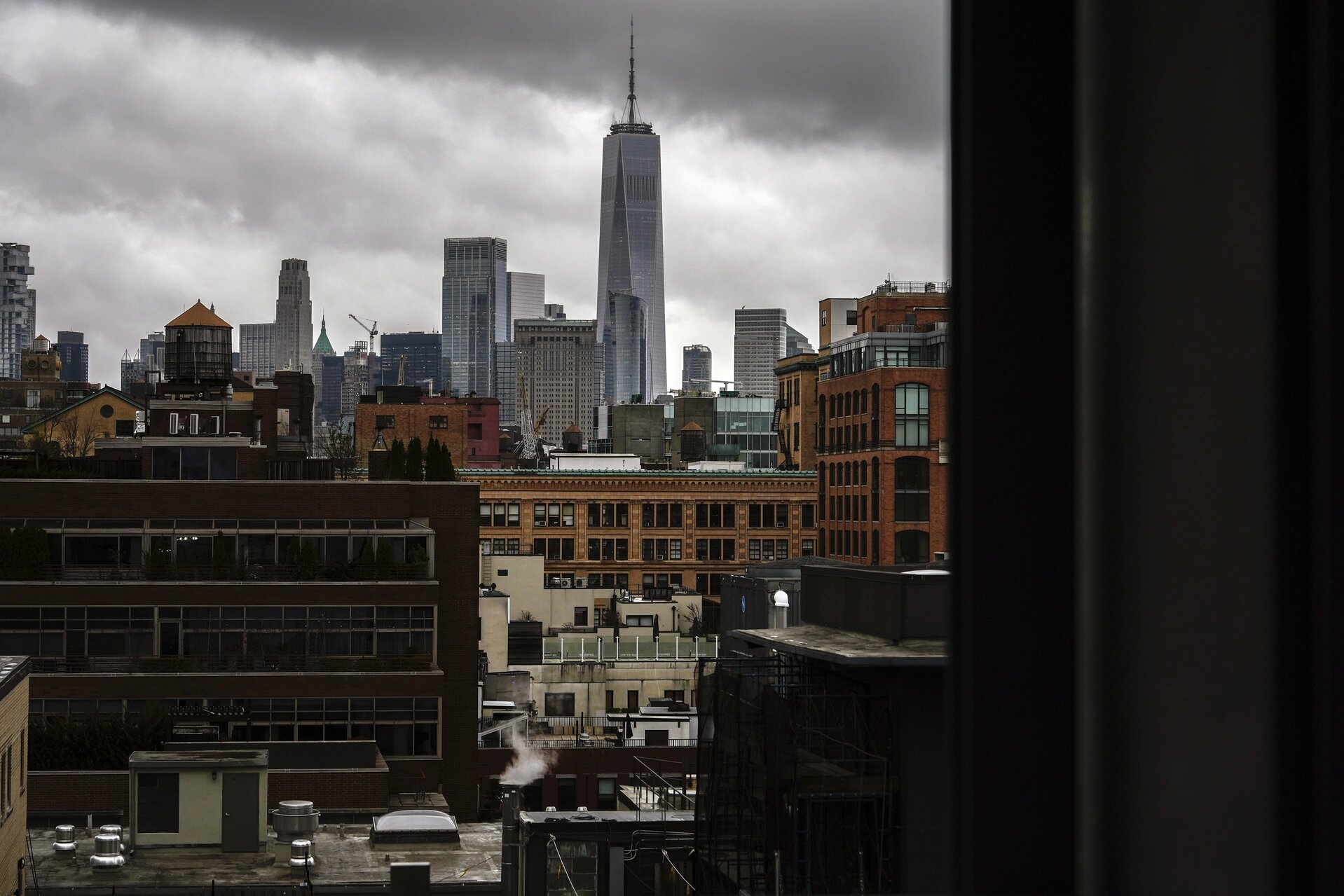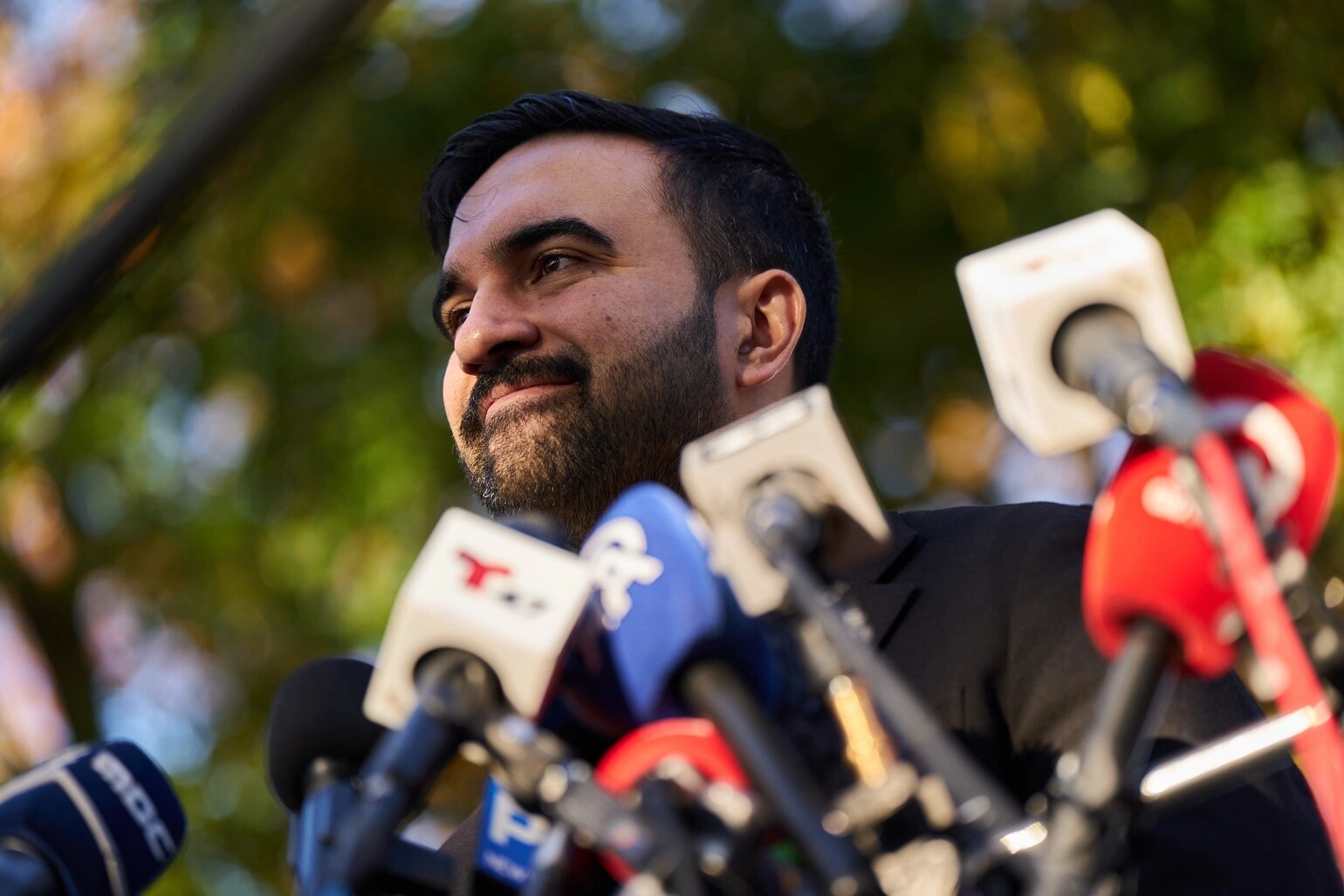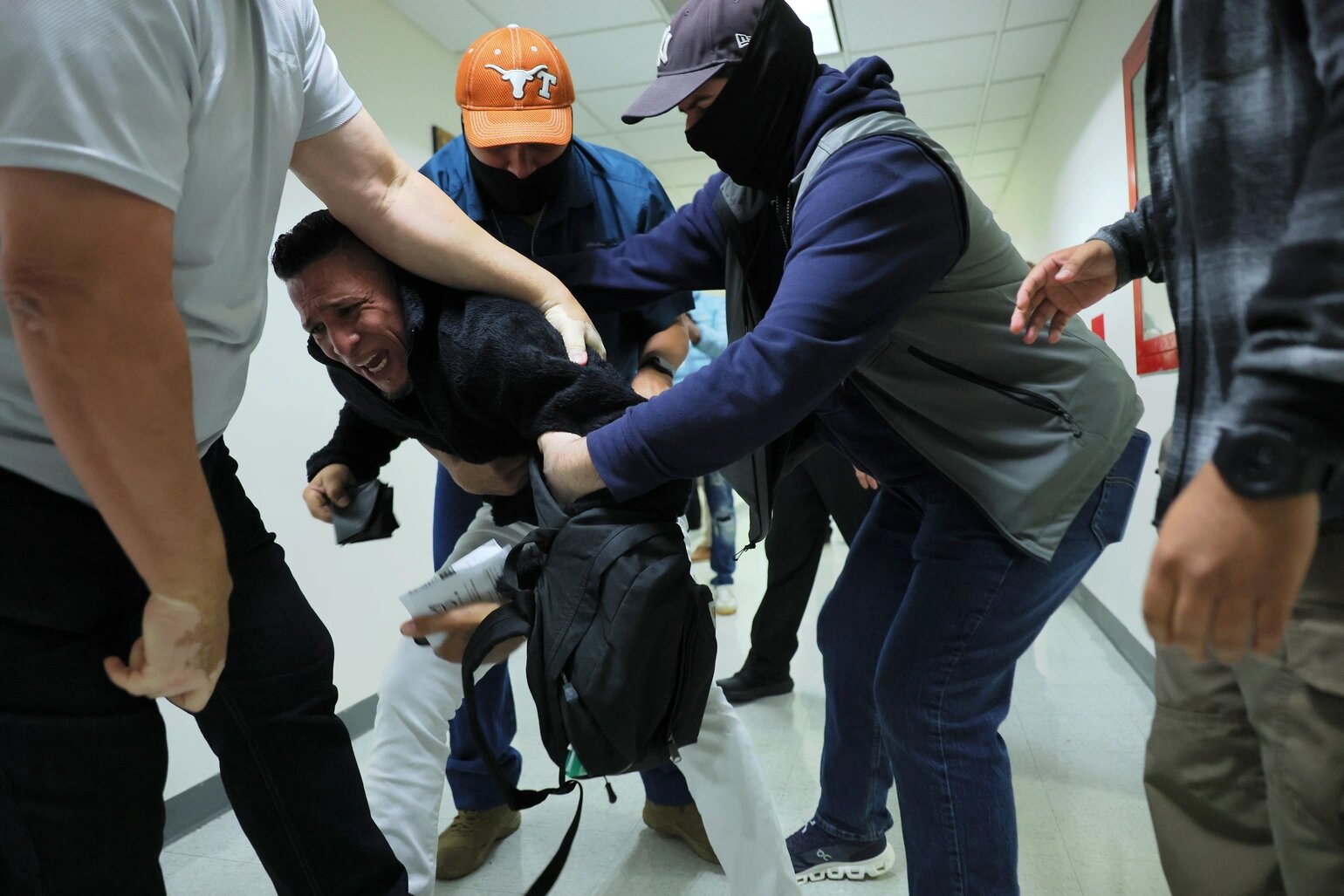The New York City mayoral race exposed a city divided — and one facing enormous economic and political pressures come January.

NEW YORK — The political, social and economic turmoil awaiting Mayor-elect Zohran Mamdani, whose ascendence has been tracked closely by both national Democrats and Republicans, will make his job especially fraught come Jan. 1.
The 34-year-old democratic socialist will inherit a deeply divided electorate dissatisfied with city services and reeling from an increasingly steep cost of living. He will face a hostile president aiming to cut funding to the city and eager to send national troops into his hometown — clashes that do not favor the far less powerful mayor. And national Republicans are eager to hold him up as an example of everything wrong with their colleagues across the aisle — while Democratic leaders in Washington remain unsure if they should come to Mamdani’s defense.
Whipsaw tariffs, looming Medicaid cuts and an anemic job market also risk sapping the economic growth needed to fund Mamdani’s pricey proposals.
For the state lawmaker, it all presents an enormous challenge that will be layered onto the baseline requirements of the job: passing the budget, picking up the garbage, policing crime and improving the delivery of city services. After four years of incumbent Eric Adams, whose approval ratings sunk to all-time lows, voters have high expectations.
“He will be walking into a very challenging fiscal situation with the city budget, and a challenging federal situation with changing policies that are going to stress all sorts of systems in the city,” said Andrew Rein, head of the Citizens Budget Commission, a New York City-based organization that promotes fiscal responsibility. “On top of that, he’ll need to deliver on some of what he promised on affordability.”

Mamdani’s Tuesday victory is reverberating far beyond the borders of New York City.
National Republicans have been eager to tether their Democratic foes to the democratic socialist. After House Minority Leader Hakeem Jeffries offered a tepid endorsement to Mamdani, House Speaker Mike Johnson wasted no time in pairing the two.
“[Jeffries] and all the other Democrats are going to co-own the consequences of what they do to America’s largest city,” Johnson said during a recent press briefing. “Every reporter in this room should be asking every House Democrat individually whether they, too, agree with Hakeem’s endorsement of the Marxist agenda.”
In practice, there will be few immediate changes in how the city delivers services like filling potholes, paving streets, repairing infrastructure and educating children once Mamdani takes over. The 300,000-person municipal bureaucracy is so vast that there is only so much a mayor can focus on changing.
But Trump, who has derisively nicknamed the mayor-elect “liddle communist,” has indicated the mere election of a democratic socialist would be sufficient pretext to send in national guard troops.
Doing so would present Mamdani with a thorny problem.
For starters, it will eat up enormous time, energy and political capital that could otherwise be spent delivering practical results for New Yorkers. And depending on the extent of the incursion, it could severely complicate the operations of the NYPD, the nation’s largest police department and an outfit so vast and sophisticated it maintains bureaus around the world and is deeply involved in counterterrorism efforts with federal partners.
With Trump ramping up immigration enforcement, scenes of New Yorkers being rounded up by U.S. Immigration and Customs Enforcement and U.S. Customs and Border Protection will incense Mamdani’s base, while the mayor is left with little recourse beyond the courts.
The president is also poised to inflict economic pain on his hometown both directly and through his broader trade policies, with shortfalls in tax revenue and federal grant money presenting a risk to proposals like Mamdani’s plans for a Department of Community Safety, which would take over mental health calls from the NYPD. The mayor-elect has also proposed making New York City buses free at a cost of around $700 million, as well as universal child care for kids up to 5 years old, an ambitious proposal that would run around $7 billion annually.
Municipal bean counters have pointed to constantly shifting tariffs as a potentially complicating factor in the city’s economic future as well. And federal cuts to health care funding are set to blow a more than $7 billion hole in the state budget — a reduction that will impact how much state lawmakers can help fund Mamdani’s priorities. In addition, Trump has threatened to cut federal aid to the city, a pot of cash that typically makes up around 10 percent of the city’s annual budget.

Those threats come as the Big Apple’s economy shows few signs of robust health.
Employment growth, for example, has for years been propped up by low-wage health care gigs that do little to bolster the broader economy. And during the first half of the year, local employers added less than 1,000 new jobs, a virtual standstill that set off alarm bells among economic observers.
Thus far, the city and national economies have been surprisingly resilient. Should that trend continue, Mamdani would likely have some money to fund a limited version of his priorities, said Nicole Gelinas, a fiscal analyst with the Manhattan Institute. But the fiscal tides are fickle and present an ever-present risk to the incoming administration.
“If the economy falls apart, he will have a fiscal problem that will only be exacerbated by the promises that he’s made,” Gelinas said.
Indeed, Mamdani’s core message during the campaign was that he would make the nation’s most expensive city a more affordable place to live. Voters are expecting him to deliver.
While Cuomo tested out campaign messages painting a dark picture of the city as crime-ridden or casting Mamdani as too inexperienced, the democratic socialist tapped into the deep economic anxieties afflicting a huge share of the electorate. That, according to Christina Greer, an associate professor of political science at Fordham University, was one of the main reasons why he was successful.
“People are recognizing that the social fabric around them is getting thin,” Greer said.
Getting the machinery of city government to move in a productive direction is easier said than done. And when Mamdani steps into City Hall next year, he will find that Adams has left him with a decidedly mixed bag.
Overall major crimes have begun to trend downward, with huge reductions in murders and shootings during the beleaguered mayor’s tenure. NYPD Commissioner Jessica Tisch appears to have cleared the department’s upper echelons of corruption — much of it tied to close Adams confidantes put in charge of the force — one of the main reasons Mamdani has asked her to stay.
But the picture on lower-level crimes is unclear. As of last year, non-felonies, misdemeanors and other infractions rose steadily since 2020. Overall major crime has remained nearly 20 percent higher than prepandemic levels.
The city still suffers from staffing shortages in key departments as well — a product of Adams’ budget cuts during the early years of his tenure.
Overall, New Yorkers are intensely dissatisfied with their government.
In a survey from the Citizens Budget Commission released in June, only 27 percent of those surveyed were satisfied with city services, down from 44 percent in 2017. Residents were particularly downcast over the delivery of housing, homelessness support and mental health assistance. And just 35 percent of those contacted by the commission felt the quality of life in New York City was excellent or good, a major drop from 51 percent in 2017.
“This is not a left, right or partisan issue,” said Rein, the head of the organization. “New Yorkers do not think the government is delivering value.”
